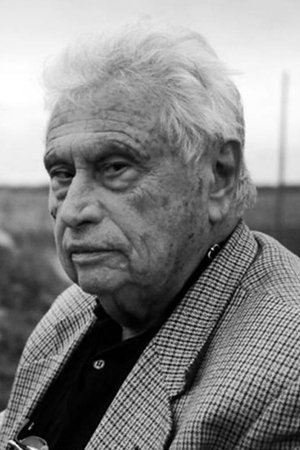
Luigi Di Gianni
Luigi Di Gianni (born in Naples on October 20, 1926 and died in Rome on May 10, 2019) is an Italian screenwriter and director. Luigi Di Gianni believes in the power of cinema. It is this spirit, tragic and rogue, that has always possessed him. And that makes his films an experience difficult to forget in any hurry. It is an insinuating spirit, which ends up delighting and even tormenting the spectator, at first alien to her. It has multiform and unpredictable tentacles, which evade the safety of easy classification. Every time one tries to venture a definition, one has the suspicion of falling into reductionism, as if something is always missing. Starting with an inevitable question, however tedious it may seem: can we be content to speak, in his case, about documentary cinema? If asked, Di Gianni would certainly answer with a peremptory no, and for good reason. His is a decidedly authorial cinema. It is crossed by cultural and intellectual tensions that embrace literature, music, philosophy and great cinema. It is sustained by a sometimes unsatisfied desire to control rhythms, atmospheres, sounds, lights, movements… Above all, it is driven by the conviction that cinema is an expressive instrument that offers us a vision (turned black) of man and the world. And yet it is clear that few filmmakers have been able to document in such depth some of the most surprising, heartbreaking and disturbing aspects of our society, especially those rooted in the atavistic miseries of the South, as if tracing the deep folds of an Italian “anti-miracle.” Let’s take a guess. Di Gianni brings to light what elsewhere we tend to sweep under the carpet of rationality and respectability, but which, inexorably, is there underneath, applying pressure: his cinema is the documentation of social repression. Let’s follow with the thread of apparent contradictions. Di Gianni is an apolitical director, he does not believe in progress (he prefers the infinite labyrinth), he tends to be on the side of history. But, at the same time, one senses in his films a cry of rebellion, a love for the last; in short, an ethical and civil tension that is often lacking in those directors whose primary aim is to change the world. Once again: the characters in his films seem inexorably shrouded in cloaks of tragedy, and yet we are surprised, at certain moments, by the mockery of an unexpectedly grotesque twist. Armed with civic presumption, we are tempted to be indignant at manifestations that seem to plunge into the abysses of ignorance and backwardness, but at the same time, it is difficult to find filmmakers who place themselves before the world they choose to represent with more respect, avoiding the temptation to judge. And do we want to call his cinema “ethnographic”? Of course, he is one of its undisputed masters. It’s a pity that he is the first to strongly deny it, claiming instead that his films are about something else. It is not surprising that Di Gianni’s cinema is a magnificently isolated object, not only in Italy (this is unmistakably demonstrated by his only feature film, Il tempo dell’inizio, a kind of slow-motion nightmare, alien and elusive). Perhaps this is also one of the reasons for its charm, unalterable with the passage of time. The revival of his films seems to us, quite simply, necessary.
Bilinen: Directing
Doğum Günü: 1926-10-20
Doğum Yeri: Napoli, Italy
Diğer Adı: